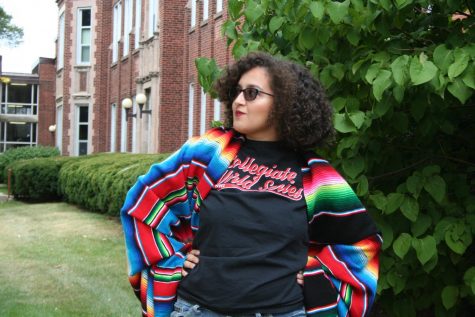Should NCAA athletes be unionized?
Clarion talks with alum and collegiate star Brasic

Former RB football star Tim Brasic talks with Clarion about unionizing NCAA athletes.
March 19, 2014
Last month Kain Colter and other members of the Northwestern football team filed to form a union with the National Labor Relations Board. The players and union believe that the athletes generate billions of dollars in revenue for the school but they can’t cover the basic expenses of attending school. The union hopes to get medical expenses covered post graduation for injuries they suffered while playing in school. Also the board claims of major college football programs, there is only a 50% graduation rate. The players are trying to gain employee status at the school so they can get a seat at the table to negotiate.
A study done at Drexel said football and basketball players at high major schools need to come up with $3,285 to cover cost, but the union argues these players don’t have time to work due to the major time commitment required with playing at that level. The NCAA claims the players are “student athletes” but the union is arguing that they can’t take any class they want at any time like most students because they have road games, practice, etc. But if they were to miss a game to go to class their scholarship would be pulled and they would not be able to attend school any more.
In light of all this we reached out to former Illinois and RB quarterback Tim Brasic on how he feels about the attempt to unionize college football players.
“The full scholarship is wonderful; however the NCAA does not allow athletes to work during the year and can make it very difficult to live,” Brasic said.
Brasic also suggested that the NCAA should either allow athletes to work or give them a little more to make up for that money they could be earning working.
When asked about staying on pace to graduate Brasic said, “I think the University of Illinois did a great job of helping athletes stay on track to graduate. I know I had all the help I needed and if it wasn’t for that help I wouldn’t have graduated.”
The day to day expenses have been a major point that Colter is trying to get the full scholarship to cover; Clarion asked Brasic how he and his teammates dealt with the problem.
“I was blessed with a family that helped me out financially while playing football, however, others were not so fortunate and it was hard for them to pay everyday expenses,” he said.
Colter feels the strongest about the medical expenses not being covered for injuries suffered playing in college, while Brasic was fortunate enough to not be severely injured in college he did have friends who were and struggle with it today.
“I believe the NCAA is doing the best they can in regards to student athletes, however, with the level of risk athletes face (especially football) and the large amounts of money college football brings in there should be a way to help athletes with compensation beyond the scholarship. At worst, allow them the hours to work,” Brasic said.

